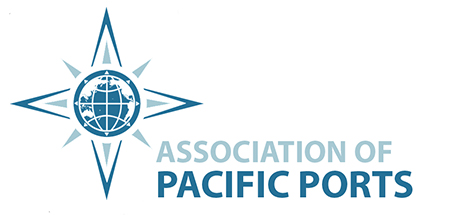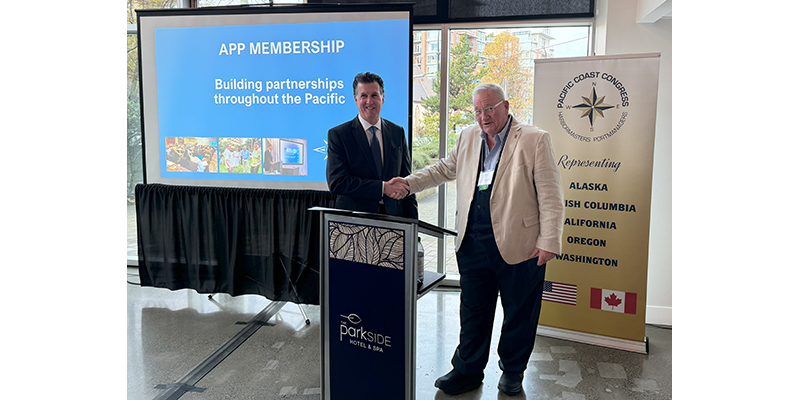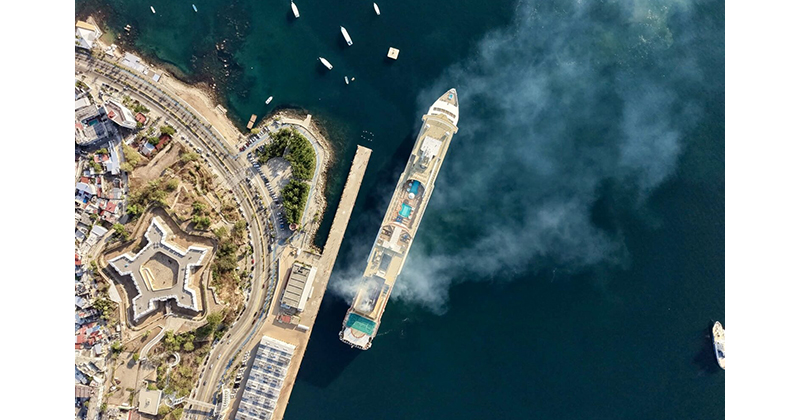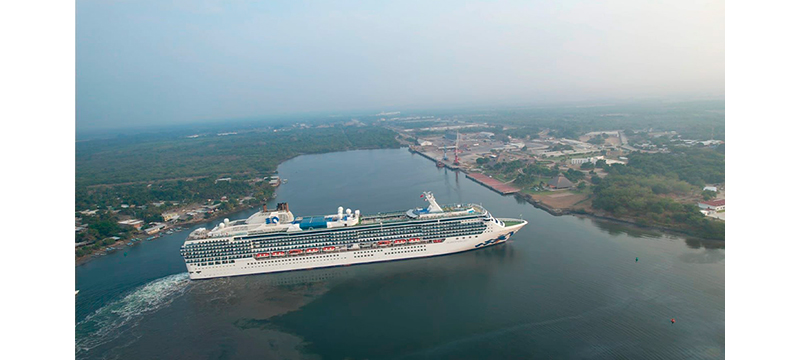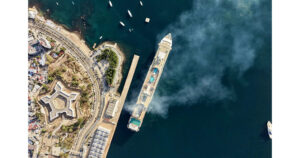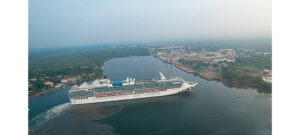October 29, 2024 — The Association of Pacific Ports (APP) and the Pacific Coast Congress of Harbormasters and Port Managers (PCC) are pleased to announce they have signed a reciprocal membership agreement. The agreement was signed during the PCC’s recent conference in Victoria with Ian Marr, President of the APP, and Scott Grindy, President of the PCC, taking part in the signing ceremony. “Given the common regional coverage and overlap of the member ports and marinas of both organizations, each with its distinct mandates, there is a great opportunity for both associations to benefit from greater communication and collaboration on issues the promote education and professionalism,” said Marr.
Grindy agreed, adding that, as a regional organization representing the states of California, Oregon, Washington, and Alaska as well as the Province of British Columbia “the PCC’s mission of promoting the development and growth of our industry through communication, education, and professional certification will be strengthened as the two associations work together to share respective activities.”
The agreement includes discounts for both APP and PCC conferences as well as the opportunity to present information on their organizations, issues, and activities; recognition on each other’s website through a dedicated page, shared communications, and the opportunity to cross-promote events.
Established in 1974, the PCC started with a small group of seven people who recognized the importance of providing a forum for commercial and recreational marina and port professionals to promote the development and growth of the industry through communication, education, and professional certification. Since that time, the PCC has grown to represent over 150 members hailing from all parts of the North American West Coast.
The APP was founded in 1913 as the Pacific Coast Association of Port Authorities (PCAPA) for the purpose of promoting increased efficiency and effectiveness of the ports of the Pacific. Programs of the APP are aimed at enhancing the technical and governance expertise of commissioners and other port officials through meetings, educational seminars, and the exchange of appropriate communications. These programs are also pertinent to the needs of ports’ management and technical staff.
Both Marr and Grindy were looking forward to working together to the benefit of both associations.
